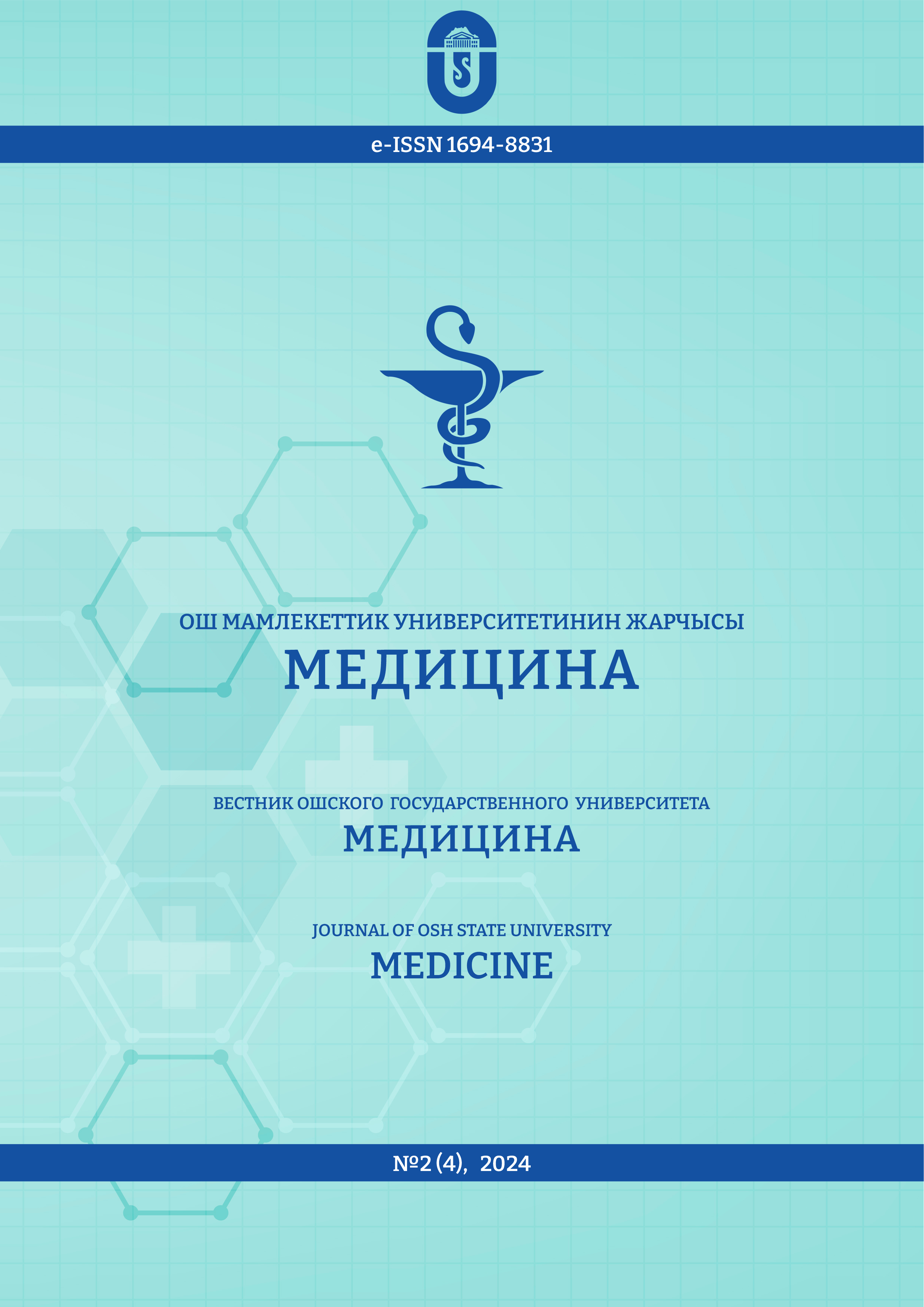IMPACTS OF SLEEP HABITS AND DURATION ON ACADEMIC PERFORMANCE AND ADAPTATION
DOI:
https://doi.org/10.52754/16948831_2024_2(4)_3Keywords:
sleep deprivation, medical students, academic performance, mental health, physical healthAbstract
Sleep is a vital physiological process essential for cognitive function, emotional stability, and overall health. This study aimed to evaluate the prevalence of stress, fatigue, and sleep disturbances among first-year medical students at the International Medical Faculty of Osh State University and identify sleep-related behaviors linked to anxiety and mood disorders. A cross-sectional study utilizing a structured survey was conducted among 211 randomly selected first-year international medical students at Osh State University, with quantitative data analyzed using Microsoft Excel and qualitative insights obtained through literature review. The study revealed that 68.1% of students reported an average sleep duration of 6-8 hours per night, while 81.3% experienced mental health issues, 72.2% reported negative physical health impacts, and 68.9% acknowledged a decline in academic performance due to sleep deprivation. The findings highlight a significant prevalence of sleep deprivation among medical students, demonstrating its detrimental effects on mental and physical health, academic performance, and overall well-being, emphasizing the urgent need for targeted interventions to promote healthy sleep habits.
References
Kohyama, J. (2021). Which Is More Important for Health: Sleep Quantity or Sleep Quality? Children, 8(7), 542. https://doi.org/10.3390/children8070542
Baranwal, N., Phoebe, K. Y., & Siegel, N. S. (2023). Sleep physiology, pathophysiology, and sleep hygiene. Progress in cardiovascular diseases, 77, 59-69.
Messa, R. M., Benfica, M. A., Ribeiro, L. F. P., Williams, C. M., Davidson, S. R. E., & Alves, E. S. (2024). The effect of total sleep deprivation on autonomic nervous system and cortisol responses to acute stressors in healthy individuals: A systematic review. Psychoneuroendocrinology, 168, 107114. https://doi.org/10.1016/j.psyneuen.2024.107114
Shafiee, A., Fili, J., Ghafari, S., Sattari, M. A., Borna, N., & Pourramzani, A. (2024). The prevalence of sleep disturbance and its possible associated factors among Iranian medical students: A cross-sectional study with a national meta-analysis. Sleep Medicine: X, 7, 100107.
Touitou, Y., Reinberg, A., & Touitou, D. (2017). Association between light at night, melatonin secretion, sleep deprivation, and the internal clock: Health impacts and mechanisms of circadian disruption. Life sciences, 173, 94-106.
Curcio, G., Ferrara, M., & De Gennaro, L. (2006). Sleep loss, learning capacity and academic performance. Sleep medicine reviews, 10(5), 323-337.
Medic, G., Wille, M., & Hemels, M. E. (2017). Short-and long-term health consequences of sleep disruption. Nature and science of sleep, 151-161.
Роль энергетических напитков в жизни студентов медицинского факультета 3-курса Ошского государственного университета: вред или польза / Ф. Р. Тажибаева, А. Имаров, А. А. Калышева, С. М. Маматова // Вестник Ошского государственного университета. Медицина. – 2024. – № 1(3). – С. 93-101. – DOI 10.52754/16948831_2024_1(3)_12. – EDN LPOETC.
Жарматова, Э. К. Стресс социалдык-психологиялык көйгөй катары / Э. К. Жарматова, А. Д. Эсеналиева // Вестник Ошского государственного университета. – 2022. – No. 3. – P. 149-156. – DOI 10.52754/16947452_2022_3_149. – EDN HIWPKY.
Studying attitudes to depression among students / A. E. Omurzakova, B. O. Abdurakhmanov, G. K. Abdykaiymova [et al.] // Bulletin of Osh State University. – 2024. – No. 2. – P. 123-131. – DOI 10.52754/16948610_2024_2_13. – EDN WSZOOR.
Downloads
Published
How to Cite
Issue
Section
License
Copyright (c) 2025 Journal of Osh State University. Medicine

This work is licensed under a Creative Commons Attribution-NonCommercial 4.0 International License.

